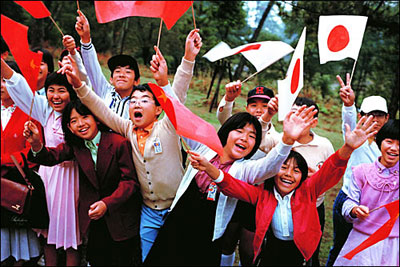The article states that if a Japanese court orders that an abducted child should be returned to the country of the child’s habitual residence the child will nonetheless not be removed from the abducting parent if that parent refuses.
I sincerely hope that the Mainichi article is inaccurate for
otherwise it would mean that a Japanese return order would effectively be
totally unenforceable.
June 13, 2013 (Mainichi Japan)
Top court to release guidelines after Japan paves way
to join int'l child custody treaty
Japan signed a domestic procedural
law on June 12 aimed at joining the Hague Abduction Convention, which
establishes protocol regarding the care of children following failed
international marriages.
As a result, the country's Supreme
Court could release guidelines to regional courts around the country by the end
of the month regarding how to approach the matter of removing children from the
custody of one of their parents.
The guidelines clearly advocate that
such removal pay close consideration to children's physical and emotional
well-being. "Children will not be forcibly taken if it is against their
will, or if their parent refuses to let them go," the procedures state.
Such ground rules will also go into
effect for non-international cases, where parents are involved in disputes over
child custody within Japan's borders.
The Hague Convention stipulates, as
a rule, that children under age 16 who have been abducted by one parent and
taken overseas must be returned to the country where they were living
originally. According to the newly passed law, if the parent in Japan has not
returned the children in two weeks following the issue of the court order, an
enforcement officer is authorized to take the children away.
In order to avoid a negative impact
upon children's physical and mental well-being, the high court orders are
expected to specify that the parent must be present -- and permission received
from the day care or school principal -- in cases where children are removed in
a school setting; and that children may also be taken away while sleeping.
The number of domestic cases in
Japan where parents do not comply with child custody court orders following
divorce is on the increase, with a total of 131 such incidents last year. In
such cases, the court enforcement officers have had to remove the children
coercively.
While the new law paving the way
toward the international Hague treaty makes it clear that the parent must be
present when the child is taken away, this has not been the case with respect
to disputes within Japan's borders. Here, court enforcement officers have
sometimes taken children away while they were at school or traveling between
school and home -- thereby causing conflict with parents.
The ground rules were compiled
following meetings held in January and February of this year, where some 150
judges and court enforcement officers from around the country exchanged views
on the matter. At this time, numerous participants expressed the opinion that
children should, as a rule, be taken away within the home setting only. In
response, the forthcoming Supreme Court guidelines are poised to include this
stipulation.



